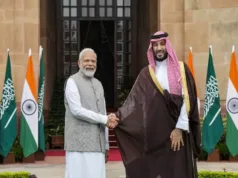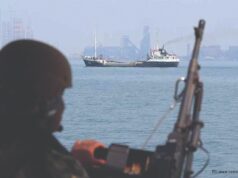
South Korea has approved $8 million in aid to North Korea via U.N. agencies as it seeks to handle humanitarian issues separately from political situations.
The government decided at an interagency meeting to support infants and pregnant women in North Korea, citing a serious humanitarian crisis facing them, according to Seoul’s unification ministry.
“Seoul will weigh the timing of an aid provision and size after taking into account various factors such as inter-Korean situations,” the ministry said in a statement.
The move came amid concerns that Seoul’s aid may compromise international efforts to pressure Pyongyang to give up its nuclear and missile programs.
The ministry said that the international community is sternly responding to North Korea’s provocations, but also emphasizing the need to extend humanitarian assistance to North Koreans.
Under the plan, the South will provide $4.5 million for a nutrition program run by the World Food Program (WFP). It will also chip in $3.5 million to a project on nutrition and vaccine provisions by the United Nations Children’s Fund (UNICEF).
“Seoul has the principle of providing all of the $8 million to North Korea,” a government official said, asked whether the size of the actual provision could be smaller.
A U.N. report showed that about 72 percent of the 24.9 million North Koreans are suffering from food shortages and malnutrition. Among them, 1.3 million, including children and pregnant women, are in acute need of help.
Karin Hulshof, regional director for East Asia and the Pacific at UNICEF, highlighted the urgency of helping North Korean children, saying that the challenges they are facing are “all too real.”
It is the first humanitarian assistance by Seoul under the Moon Jae-in administration, which took office in May. It will also mark the resumption of aid via U.N. organizations after a hiatus of nearly two years.
South Korea offered humanitarian assistance to the North even under conservative administrations. But the government under ousted President Park Geun-hye, Moon’s predecessor, stopped providing the aid after the North’s fourth nuclear test in January 2016.
In May, Seoul announced its move to spur civilian inter-Korean exchanges and assistance, but North Korea has rejected them, citing the South’s support of U.N. sanctions.








